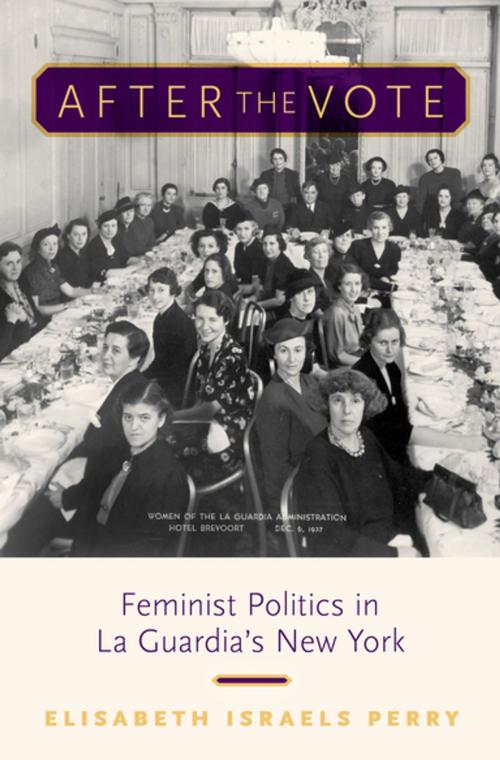After the Vote
Feminist Politics in La Guardia's New York
Nonfiction, History, Americas, United States, 20th Century| Author: | Elisabeth Israels Perry | ISBN: | 9780199341863 |
| Publisher: | Oxford University Press | Publication: | March 6, 2019 |
| Imprint: | Oxford University Press | Language: | English |
| Author: | Elisabeth Israels Perry |
| ISBN: | 9780199341863 |
| Publisher: | Oxford University Press |
| Publication: | March 6, 2019 |
| Imprint: | Oxford University Press |
| Language: | English |
Soon after his inauguration in 1934, New York City mayor Fiorello La Guardia began appointing women into his administration. By the end of his three terms in office, he had installed almost a hundred as lawyers in his legal department, but also as board and commission members and as secretaries, deputy commissioners, and judges. No previous mayor had done anything comparable. Aware they were breaking new ground for women in American politics, the "Women of the La Guardia Administration," as they called themselves, met frequently for mutual support and political strategizing. This is the first book to tell their stories. Author Elisabeth Israels Perry begins with the city's suffrage movement, which prepared these women for political action as enfranchised citizens. After they won the vote in 1917, suffragists joined political party clubs and began to run for office, many of them hoping to use political platforms to enact feminist and progressive public policies. Circumstances unique to mid-twentieth century New York City advanced their progress. In 1930, Governor Franklin D. Roosevelt authorized an inquiry into alleged corruption in the city's government, long dominated by the Tammany Hall political machine. The inquiry turned first to the Vice Squad's entrapment of women for sex crimes and the reported misconduct of the Women's Court. Outraged by the inquiry's disclosures and impressed by La Guardia's pledge to end Tammany's grip on city offices, many New York City women activists supported him for mayor. It was in partial recognition of this support that he went on to appoint an unprecedented number of them into official positions, furthering his plans for a modernized city government. In these new roles, La Guardia's women appointees not only contributed to the success of his administration but left a rich legacy of experience and political wisdom to oncoming generations of women in American politics.
Soon after his inauguration in 1934, New York City mayor Fiorello La Guardia began appointing women into his administration. By the end of his three terms in office, he had installed almost a hundred as lawyers in his legal department, but also as board and commission members and as secretaries, deputy commissioners, and judges. No previous mayor had done anything comparable. Aware they were breaking new ground for women in American politics, the "Women of the La Guardia Administration," as they called themselves, met frequently for mutual support and political strategizing. This is the first book to tell their stories. Author Elisabeth Israels Perry begins with the city's suffrage movement, which prepared these women for political action as enfranchised citizens. After they won the vote in 1917, suffragists joined political party clubs and began to run for office, many of them hoping to use political platforms to enact feminist and progressive public policies. Circumstances unique to mid-twentieth century New York City advanced their progress. In 1930, Governor Franklin D. Roosevelt authorized an inquiry into alleged corruption in the city's government, long dominated by the Tammany Hall political machine. The inquiry turned first to the Vice Squad's entrapment of women for sex crimes and the reported misconduct of the Women's Court. Outraged by the inquiry's disclosures and impressed by La Guardia's pledge to end Tammany's grip on city offices, many New York City women activists supported him for mayor. It was in partial recognition of this support that he went on to appoint an unprecedented number of them into official positions, furthering his plans for a modernized city government. In these new roles, La Guardia's women appointees not only contributed to the success of his administration but left a rich legacy of experience and political wisdom to oncoming generations of women in American politics.















